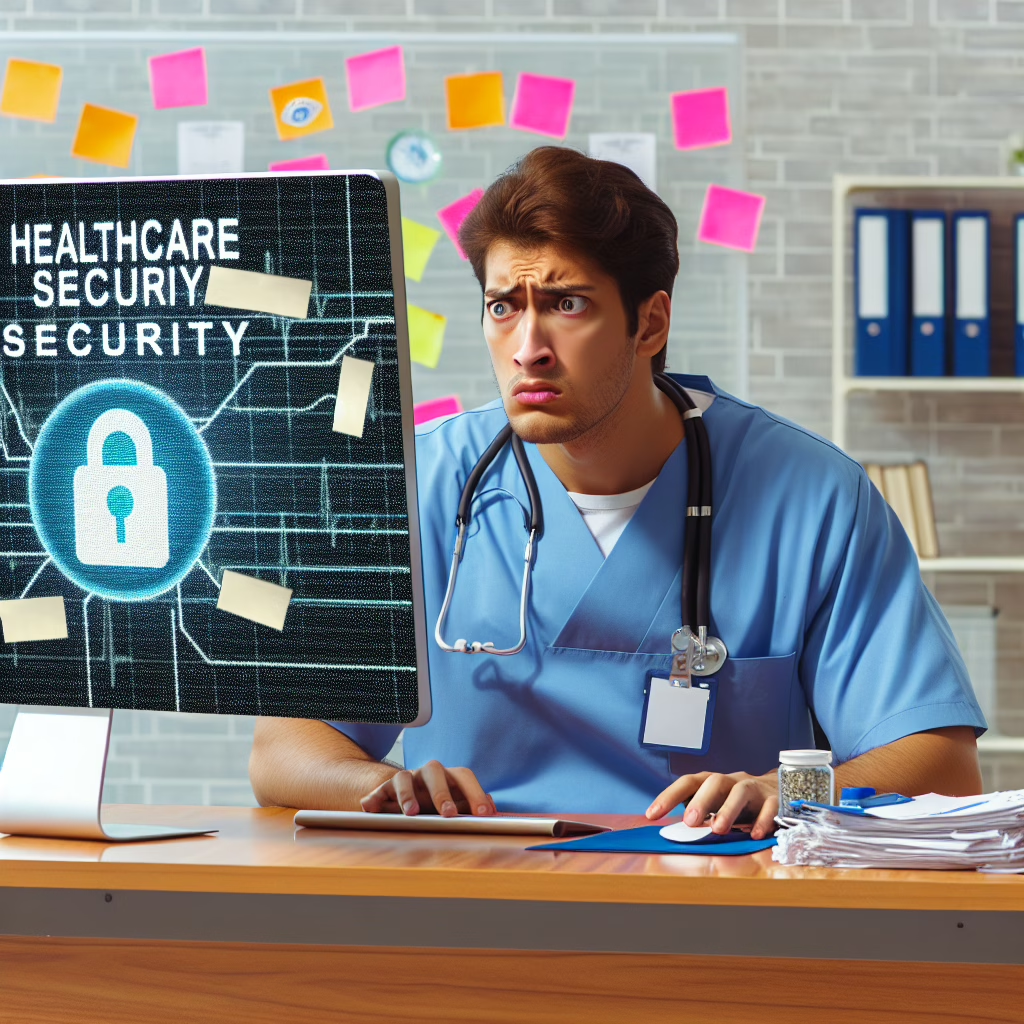In the bustling world of healthcare, where lives hang in the balance, you’d expect that security measures would be tight enough to withstand a superhero’s punch. Yet, according to recent reports, healthcare workers are making a worrying amount of security mistakes at work. In this whimsical yet insightful exploration, we’ll navigate through the minefield of security faux pas that healthcare professionals are committing daily—because who knew that saving lives could come with a side of security slip-ups?
Why Are Healthcare Workers Falling for Security Traps?
Imagine this: a dedicated nurse is juggling medication schedules, patient care, and the occasional coffee break (or two). In the midst of this chaos, a phishing email pops up. Spoiler alert: it’s not from a long-lost relative leaving an inheritance but rather a crafty cybercriminal ready to snatch sensitive data! This scenario isn’t just a plot twist in a medical drama; it’s happening more often than we’d like to admit.
According to cybersecurity experts, around 70% of healthcare workers have experienced some form of a security incident within their facilities. That’s right! With all the focus on patient care, it seems that security awareness sometimes gets lost in the shuffle. Who can blame them? After all, no one ever said saving lives came with an instruction manual on cybersecurity!
The Most Common Security Mistakes in Healthcare
Let’s take a closer look at some of the top contenders in the *”Oops! I Did It Again”* category of healthcare security mistakes:
- Weak Passwords: “123456” might as well be the secret handshake for hackers. Many healthcare workers still use easy-to-guess passwords that could be cracked faster than you can say “HIPAA compliance.”
- Neglecting Software Updates: When was the last time you updated your software? If your answer is longer than your last vacation, you might want to reconsider. Outdated software is like leaving your front door wide open with a sign that says “Welcome, hackers!”
- Sharing Credentials: Sharing passwords among colleagues might seem harmless—after all, teamwork makes the dream work! But when it comes to credentials, sharing is definitely not caring.
- Ignoring Phishing Attempts: Those emails promising miracle cures or vacation packages to exotic locales? They’re not just spam; they’re traps! Healthcare workers need to develop a keen eye for spotting these cyber threats.
Implementing Better Security Practices
So what’s the solution? How can we turn this ship around and steer towards smoother waters in healthcare security? Here are some light-hearted yet effective strategies:
- Training Sessions: Conduct regular training sessions that don’t feel like torture sessions. Make them interactive! Gamify the learning process so healthcare workers can level up their cybersecurity skills while having fun.
- Password Managers: Encourage the use of password managers. These nifty tools create complex passwords and store them securely. It’s like having a personal bodyguard for your digital life.
- Cultivating Awareness: Create a culture where reporting security incidents is encouraged. The earlier these issues are caught, the less likely they are to snowball into major crises. Think of it as practicing preventative medicine but for cybersecurity!
- Frequent Software Updates: Make updates as routine as morning coffee. Set reminders or automate updates so they happen without a hitch.
The Bright Side: Opportunities for Improvement in Healthcare Security
The silver lining in this cloud of healthcare security mishaps is that there’s always room for improvement. By recognizing these mistakes and addressing them head-on, healthcare facilities can enhance their security posture significantly. After all, if we can combat viruses and infections, surely we can tackle cybersecurity threats too!
In 2025, as technology continues to evolve at breakneck speed, healthcare workers will need to stay one step ahead of cybercriminals. Investing in training and implementing robust security protocols can lead to safer environments for both patients and practitioners alike.
This journey might be filled with comedic blunders along the way, but it’s also an opportunity for growth and development. So let’s embrace these challenges with humor and resilience!
Your thoughts matter! Have you encountered any amusing or concerning security mistakes in your workplace? Share your experiences in the comments below!
For further insights, you may want to read about how Quantum AI is transforming business interests in 2025 or Instagram’s challenges in the competitive landscape.
Sources: Cybersecurity & Infrastructure Security Agency (CISA), Healthcare Information and Management Systems Society (HIMSS).

